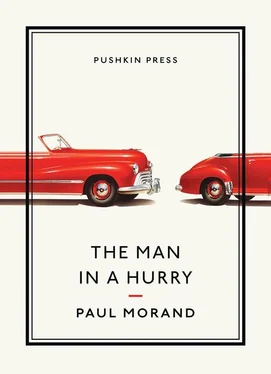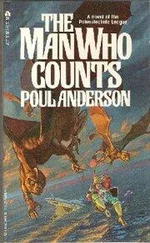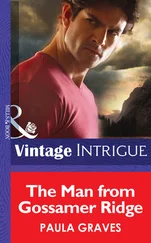“For languorous Rio?
“For indolent Oceania?
“For the stillness of Tibet?
“A little organization, for heaven’s sake! A little concentration. I must know where I want to go; let’s close our eyes, let’s imagine these journeys. Where do I feel drawn to out of a deep-seated need…? Obviously, to a railway station first of all; a train, no matter which one! The circle line? Going round and round New York endlessly? Come on now, I am in full possession of my mind, after all… What I need is something to do immediately, this very day. I can’t remain in this room, it would drive one to suicide!”
All of a sudden, he remembered having accepted an invitation from an important daily newspaper to fly over New York at sunset this same evening. He was saved.
“Let’s go,” he exclaimed joyfully, “let’s go to this very American occasion.”
Pierre arrived at the elevated railway. Four parallel lines ran south-east to north-west, the two outer ones for the stopping trains, and in the middle, four tracks reserved for the express trains. He took the stopping train.
The time? Shortly after the ebb tide that had already emptied the business district.
The place? Downtown, where the first streets start, in the direction of the Bronx, that is to say New York’s back of beyond; along one of those parrot ladders, vertical avenues, crossed by side roads, that lead to the north.
The setting? A suspended iron bridge with a plunging view over dirty windows, low roofs and, further on, over offices and clean windows, brilliantly lit hotels, apartments that were initially simple, then more and more luxurious, and then, once more, humble ones.
Pierre is almost the only person in his carriage: a few office cleaning ladies, some delivery drivers hanging by one arm from the straps — all these people immersed in their evening newspaper as though in a printer’s bath. A toothpaste advertisement provides travellers with a mirror in which Pierre inspects himself.
“I look very well.”
Even though he is only in his early thirties, it is hardly credible, so drawn are his features, so greying is his hair at the top of his skull, beneath his black hat. His nose has become a bird’s beak. Not only has his face lost the youthful and charming glow it once had, but his physiognomy, that is to say the unchanging part of our face on which doctors or gypsy women base their diagnoses or prognoses, had much altered during the trip. His forehead has become wrinkled like a beach at low tide, the wrinkles have merged with his flesh, leaving blue gaps at the temples, and the bags beneath his eyes are those of a man who is worn out.
“This train stops at all the stations, yet it appears to be moving really quickly. One is so close to the houses that the sight of all the windows right in front of you is like so many punches in the face.”
Pierre is sitting down and not doing anything, but he has the feeling that he is being active. These windows that flash by strike him as moments from a life that will never return. The electric rails draw him onwards with the same imperious invitation as the logic that hurls him into the future. Restrain himself? Never! Let others get bogged down in their individual labyrinth, become entangled and lulled into this and that course; he knows he is gripped by a power vindicated by supreme necessity.
Having arrived at a main station, he changed trains and caught the express.
“I’m inexhaustible; no sooner do I move onto this line than I’m already thinking about being in the car that is waiting for me. How I love this noise of the wind whistling in my ears! What I’m doing excites me and urges me on; I forget about anything that delays me; I’m quite content to live in the following moment in this way. I don’t exist, I pre-exist; I’m a predated man; no, I’m not a man, I’m a moment!”
And so his troubles do not leave him! He is building his mental constructions in that vast wasteland, the future. The closer he gets to them, the land shrinks back. Pierre will end up by building on a wild ass’s skin, on a diminishing asset, as narrow as the rock upon which New York stands. In any case, the city and he have no foundation, they are rootless: weak and unsteady like the present moment.
The express went at a faster speed than the stopping train, but because it no longer skimmed the houses, one didn’t notice them. Pierre was amused by this illusion of appearing to go more slowly by going faster.
“The train still sings its own song, a sort of popular refrain from the axle, an opera chorus tune from the rails: ‘On we go! On we go…!’ Perhaps the aeroplane in which I shall be sitting in a few moments’ time will make me feel nostalgic for this train? It may even explode in the air, lose a wing, catch fire? ‘Monsieur rushes about too much,’ Chantepie said to me when, in my haste, I banged my head against the breakfast tray. I’d already like this plane to crash.
“I can’t keep still any more… I’m missing all the stations, these stations my train passes through without warning, without crying ‘watch out’ or ‘ gare ’ (what a strange expression!)”
Pierre burst out laughing at this ridiculous thought. A rather dreadful laugh.
His face was pale. His fingers were shaking. He was becoming an exaggerated version of the person he was. This caricature of himself at this moment, in this hit-and-run train suspended above buildings that were gigantic and had no authenticity, was nevertheless the most accurate expression of the truth. He who believed so firmly in the straight line was spinning around dead ends, his exuberant soul, his scatterbrained imagination and his bogus mentality lost in mazes. Like everybody else, this emancipated man carried his master on his shoulders.
*
The cars were waiting on 155th Street.
Pierre, together with the guests, climbed into a superb promotional vehicle which sped off. The speedometer touched 150 kilometres an hour without one noticing, with the nonchalance of a child’s scooter.
Cemeteries. Tombstones. Golf courses. Mausoleums. The last trolleybuses. Summer restaurants. Not one tree. A stiff breeze. A copper-coloured sunset.
Woodlawn Cemetery… Pelham Park… Casanova…
A nasal voice in his ears announced the names of places, of beauty spots along the way, but Pierre was not listening or looking round. An inner chill froze his limbs.
“I don’t feel well,” he said to himself. “No matter… Let’s be in a good mood… This excursion is delightful, only somewhat long… Let’s be alive… After all, my tragedy is a comic drama, not a cosmic one.”
Having made this effort to pull himself together, he began to feel anxious again.
“I feel more out of breath than if I’d done a five-hundred-metre sprint… When I get back to Paris I must see a doctor.”
They arrived at the aerodrome. The wind had dropped. The windsock was pointing towards the lawn. A fine aeroplane, as platinum-coloured as a film star, the Lockheed Superbus 999, was waiting for them, surrounded by photographers.
They took off.
Powered by four engines, the plane rose into the sky as straight as Jacob’s ladder while the stewardess placed in front of them, on plywood tables, some drinks that were tilted by the perpendicular ascent, tilted as when one drinks.
“It’s really strange,” thought Pierre, “I’ve travelled in succession on a stopping train, an express, a fast car and a state-of-the-art aeroplane, that is to say I’ve increased speed each time, and the faster I go the more things appear to slow down. We’re doing five hundred kilometres per hour, and it seems to me that we’re not moving. Here I am suspended in total space, detached from the world; everything becomes never-ending; the bigger it is the less it moves; the port barely drifts out of sight because it is enormous; the sea becomes stiller the more it becomes ocean.
Читать дальше












